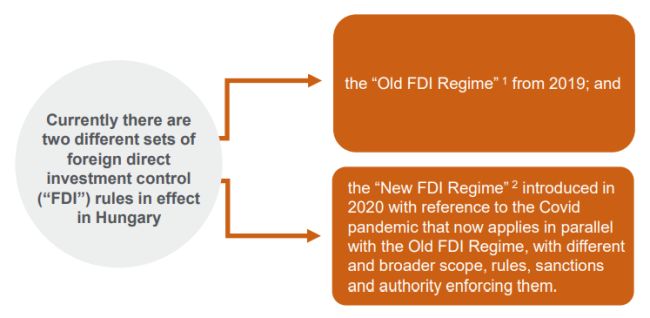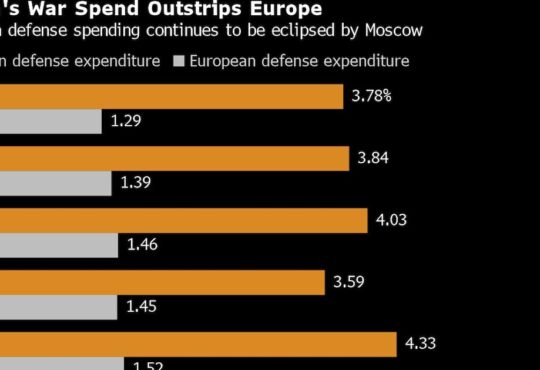
To print this article, all you need is to be registered or login on Mondaq.com.

On 23 December 2022, the Hungarian government adopted a new
decree3 (the “New FDI Government
Decree“) amending certain rules of the New FDI Regime
set forth in Act LVIII of 2020 and in some other laws. 4 The New
FDI Government Decree is applicable during the emergency situation
declared in Hungary relating to the war in Ukraine, i.e., until
approximately the end of May 2023, although the Hungarian
government may prolong the emergency situation if its conditions
remain. From the legal perspective, this means that the previous
rules of the New FDI Regime remain in effect, but as long as the
New FDI Government Decree is in force, its provisions prevail over
the general rules and must be applied to transactions covered by
the New FDI Regime. The New FDI Government Decree did not change
the Old FDI Regime, but it is important to note that until 1 June
2023, investors from the EU, the EEA and from the Swiss
Confederation also qualify as foreign investors under the Old FDI
Regime. The New FDI Government Decree introduces the following main
changes to Hungary’s New FDI Regime, in addition to several
technical clarifications and modifications.
01 Definition of state interest
The New FDI Government Decree creates a more uniform system of
definitions by incorporating the definition of state
interest—with unchanged content—from Act XCIX of 2021,
so that all applicable rules of the New FDI Regime are included in
the same law. State interest is defined as public interest related
to the security and operability of networks, equipment and to the
continuity of supply, or related to a fundamental economic
strategic interest from a national economic perspective and which
is not regulated by sectoral EU or national law.
This definition is important because upon receipt of the FDI
notification, the minister shall immediately examine whether the
notifier’s acquisition will harm or threaten the state
interest, public safety, and public order of Hungary, or the
possibility of their occurrence.
02 Activities that make a company ‘strategic’
It remains unchanged under the New FDI Government Decree that
transactions involving a socalled “strategic company”
must be notified to the authorities. The list of the types of
entities that may qualify as a “strategic
company”—similar to the definition of state
interest—has been unified by adding universities and colleges
operating in the form of a legal entity. These can qualify as
“strategic” if they are engaged in activities the NACE
(in Hungarian TEÁOR) code of which are included in
Annex No. 1 to the New FDI Government Decree.
The New FDI Government Decree adds the following new activities
to the already extensive list of strategic activities that qualify
a company as strategic company:
- Financial service activities, except insurance and pension
funding; and - Insurance, reinsurance and pension funding, except compulsory
social security.
03 Notifiable transactions
A transaction must be notified if certain types of foreign
investors intend to acquire interest in a Hungarian strategic
company by entering into certain transactions. The New FDI
Government Decree sets out three foreign investor categories (the
“Foreign Investor“):
- a legal entity or other organisation registered in the
EU, the EEA or in the Swiss Confederation if a non-EEA
person has majority influence in such entity; or - a citizen of or a legal entity or other organisation
registered in a country outside the EU, the EEA or in the Swiss
Confederation; or - a citizen of or a legal entity or other organisation
registered in another EU/ EEA country and in the Swiss
Confederation.
A transaction must be notified if a Foreign Investor
defined in point b (i.e., a purely third-country investor)
acquires
- a stake as a result of which its shareholding, directly or
indirectly, is at least 5% (instead of the previous 10%) in
a strategic company, or at least 3% if the strategic company is a
public limited company, provided that the total value of
the investment reaches or exceeds HUF 350 million; or - a 10%, 20% or 50% stake (or a bond or beneficial
interest) in a strategic company (instead of the previous 15%),
regardless of the value of the transaction.
A transaction must be notified if a Foreign Investor defined in
points a) or c) acquires directly
or indirectly majority influence in a strategic
company by acquiring shares, a bond or usufructuary right, provided
that the total value of the investment reaches or exceeds HUF 350
million..
A transaction must also be notified if a Foreign Investor either
defined according to points a) or b) (i.e., investors other than
purely EU/EEA/Swiss Confederation based investors) acquires the
title to, or the operating rights (e.g., acquiring strategic assets
as part of asset deals or by way of a lease agreement or exercising
a call option right) of, infrastructure assets, equipment
or tools that are essential for the conduct of the strategic
company’s activities.
04 Eemption rule for intra-group transactions in 04
Hungary
Hungary’s New FDI Regime provides for an exemption from the
notification obligation for transactions that are implemented in
respect of a foreign entity and in relation to companies that are
related parties within the meaning of the Hungarian Accounting Act.
The New FDI Governmental Decree attempts to clarify the wording of
the intra-group exemption, but it remains unclear whether the
exemption granted to intra-group restructurings applies to
transactions directly or indirectly over strategic Hungarian
companies. Based on a conservative interpretation of the New FDI
Governmental Decree, the intra-group exemption may apply only to
upstream transactions, i.e., transactions where the share transfer
involving related parties occurs in respect of a foreign entity
(e.g., at the level of the mother company of a strategic Hungarian
company).
This would mean that intra-group restructurings entered into by
and between related parties at the level of a strategic Hungarian
company (i.e., the shareholder of the Hungarian company changes)
may not be exempt from the notification obligation under the New
FDI Regime. It is worth noting that the New FDI Governmental Decree
maintains the foreign-to-foreign exemption rule of the New FDI
Regime, meaning that third-party upstream transactions executed
above the level of a strategic Hungarian company are exempt from
the notification obligation.
The content of this article is intended to provide a general
guide to the subject matter. Specialist advice should be sought
about your specific circumstances.
POPULAR ARTICLES ON: Government, Public Sector from Czech Republic







